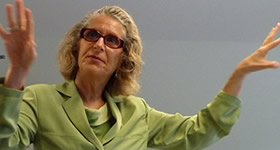In our book Keep Your Donors, Tom Ahern and I write about the importance of “why.”
I'm worried about the unserious and uncurious
In our book Keep Your Donors, Tom Ahern and I write about the importance of “why.”
Filed under: Leadership

A consultant specializing in fund development, strategic planning, and board development, Simone P. Joyaux works with all types and sizes of nonprofits, speaks at conferences worldwide, and teaches in the graduate program for philanthropy at Saint Mary’s University, MN. Her books, Keep Your Donors and Strategic Fund Development, are standards in the field.